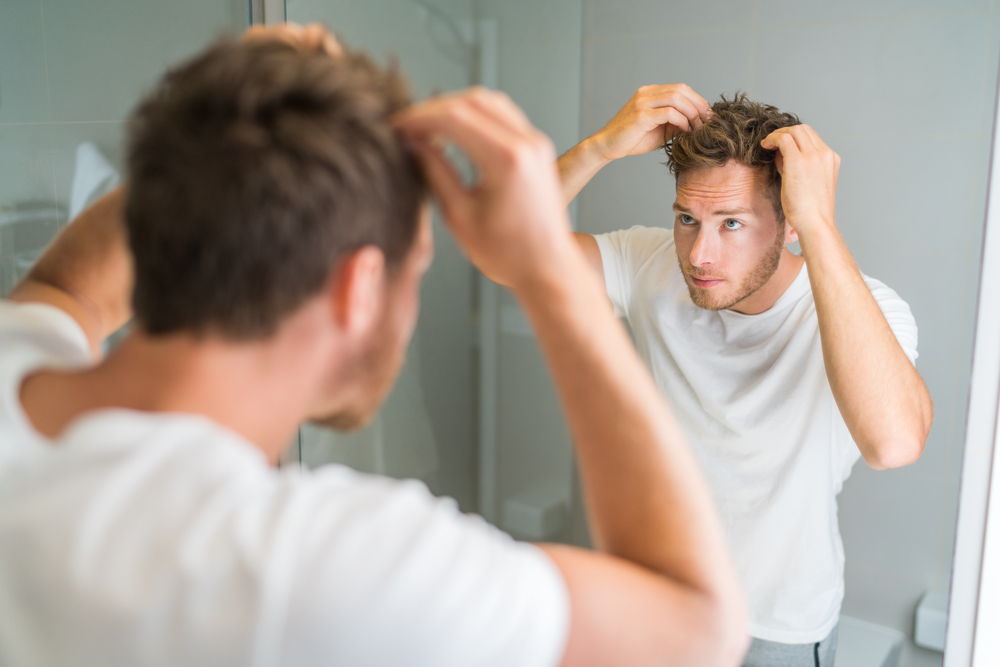Noticing your hair thinning or finding more strands in the shower can be really unsettling, especially when it’s due to stress. You’re already dealing with the pressures of life, and now hair loss is adding to that. It’s easy to feel concerned—stress-related hair loss happens to a lot of people.
What makes it even harder is that losing hair because of stress can make you feel more stressed, creating a frustrating cycle. But you’re not stuck in this loop. The good news is that this kind of hair loss doesn’t have to be permanent, and understanding why it happens is the first step to getting back on track.
Why does stress cause hair loss?
Stress can have a significant impact on your body, and your hair is no exception. When you’re under a lot of stress, your body shifts into survival mode, focusing on essential functions and neglecting things like hair growth. This can lead to a condition called telogen effluvium, where stress pushes more hair follicles into the resting phase, causing them to fall out.
While it’s normal to lose about 50 to 100 hairs a day, stress can cause that number to rise. In severe cases, you might notice handfuls of hair coming out at once, which can feel alarming. Stress-related hair loss doesn’t happen immediately, either—it often shows up months after a stressful event or period. This delay can make it harder to pinpoint the cause.
How to stop hair loss from stress?
Preventing further hair loss from stress is all about managing both your stress levels and supporting your hair’s health. One of the first steps is finding ways to reduce the stress that’s causing the hair loss in the first place.
Exercise is another powerful tool. Regular physical activity not only reduces stress but also improves circulation, which helps deliver nutrients to your scalp and supports hair growth.
Getting enough sleep is equally important—stress can disrupt your sleep patterns, and lack of sleep can, in turn, make stress worse, creating a cycle that’s hard to break.
On the hair care side, be gentle with your hair during stressful periods. Avoid harsh treatments like frequent heat styling or chemical processing, which can weaken already fragile hair.
You can also consider using hair-strengthening products, such as gentle shampoos, conditioners, or hair masks that nourish your scalp and hair follicles.
By taking care of both your stress and your hair, you can give yourself the best chance of slowing or stopping the hair loss and encouraging regrowth.
Frequently asked questions about hair loss
How much hair can you lose from stress, and is it permanent?
Stress can cause significant hair loss, with up to 300 hairs a day in severe cases. However, this type of hair loss is usually temporary and not permanent.
How long does stress-related hair loss last, and when will my hair grow back?
Stress-related hair loss can last 6-12 months, but hair typically starts to regrow once stress is managed. Full regrowth may take up to a year.
What are the best ways to prevent hair loss caused by stress?
To prevent stress-related hair loss, manage stress with relaxation techniques, exercise regularly, get enough sleep, and use gentle hair care products.

